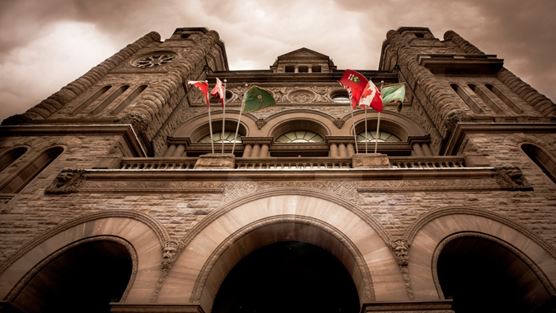On Thursday, November 5, 2020, Premier Doug Ford and Minister of Finance Rod Phillips released Ontario’s Action Plan: Protect, Support, Recover - the second phase of a comprehensive action plan to respond to the serious health and economic impacts of COVID-19. Ontario's Action Plan now sets out a total of $45 billion in support over three years to provide more resources to strengthen frontline health care, support people and employers, and lay the groundwork for Ontario’s recovery.
Support for BIPOC Youth
![]()
Ontario is investing an additional $60 million over three years starting in 2020–21 in the Black Youth Action Plan, doubling its base funding to extend the current program and create a new economic empowerment stream that will support Black youth in achieving social and economic success.
Support for Children Learning from Home
Tax Credit for Seniors’ Home Renovations
![]() Ontario is proposing a 2021 Seniors’ Home Safety Tax Credit — a refundable 25 per cent tax credit on eligible home improvement costs of up to $10,000 (maximum credit of $2,500) — to help seniors stay in their homes longer by making their homes safer and more accessible.
Ontario is proposing a 2021 Seniors’ Home Safety Tax Credit — a refundable 25 per cent tax credit on eligible home improvement costs of up to $10,000 (maximum credit of $2,500) — to help seniors stay in their homes longer by making their homes safer and more accessible.
Eligible expenses would include:
- Renovations to permit a first-floor occupancy or secondary suite for a senior;
- Grab bars and related reinforcements around the toilet, tub and shower;
- Wheelchair ramps, stair/wheelchair lifts and elevators;
- Non-slip flooring;
- Additional light fixtures throughout the home and exterior entrances;
- Automatic garage door openers; and
- Modular or removable versions of a permanent fixture, such as modular ramps and non-fixed bath lifts.
Investing in Our Communities
![]()
Boost for Arts Funding
![]()
Increased Broadband Access
![]()
Cutting Electricity Costs
![]()
Reducing Property Taxes for Job Creators
Allow For and Match Municipalities Small Business Property Tax Cut
Permanent Employer Health Tax (EHT) Exemption Increase
Discover Ontario in 2021
Maintaining Cultural Media Tax Credit Eligibility
Supporting Research & Development
- Corporations with tax year-ends from September 13, 2018 to December 31, 2018 would have an additional six months to file an ORDTC claim.
- Corporations with tax year-ends from January 1, 2019 to June 29, 2019 would have until December 31, 2020 to file the claim.
Cancelled Wine Tax Increase, Frozen Beer Tax Rates
![]() Due to the unique circumstances and economic hardships being faced by the alcohol and beverage sector, Ontario is proposing to retroactively cancel the increase in wine basic tax rates legislated to occur on June 1, 2020, as well as freeze beer tax rates until March 1, 2022. The government issued an order under the Financial Administration Act during the state of emergency that prevents the increase from being applied between June 1, 2020 and December 31, 2020.
Due to the unique circumstances and economic hardships being faced by the alcohol and beverage sector, Ontario is proposing to retroactively cancel the increase in wine basic tax rates legislated to occur on June 1, 2020, as well as freeze beer tax rates until March 1, 2022. The government issued an order under the Financial Administration Act during the state of emergency that prevents the increase from being applied between June 1, 2020 and December 31, 2020.
This article has been prepared for the general information of our clients. Please note that this publication should not be considered a substitute for personalized advice related to your situation.
Related Posts
Contact Us





